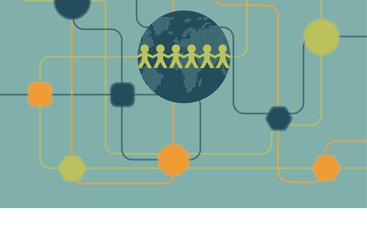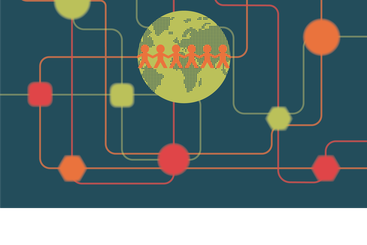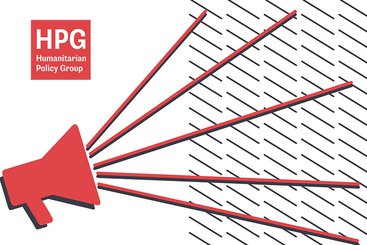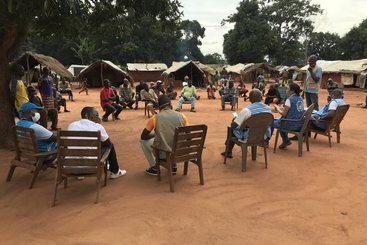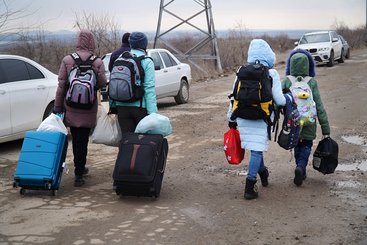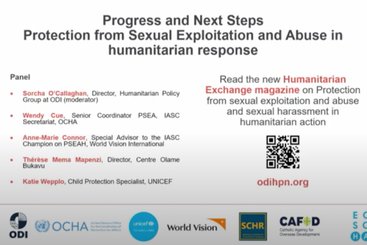
Protection
Over the past three years, HPG has explored current practices, challenges and opportunities surrounding protection advocacy. The research is summarised in the final report, 'Advocating for better protection of civilians: from stagnation to action', which identifies critical actions required to strengthen protection advocacy.
Our work on protection advocacy by INGOs highlighted high levels of risk aversion and a lack of leadership as key inhibiting factors for effective protection advocacy. This, combined with a lack of incentives to conduct advocacy in conflict-affected countries, has meant that INGO advocacy is often deprioritised in favour of operational presence and response.
Our research demonstrates how working collaboratively with a range of humanitarian and non-humanitarian actors can help mitigate some of the risks and challenges inherent in carrying out protection advocacy and increase the impact of advocacy efforts. For example, the value of complementary approaches between international humanitarian and national actors in carrying out protection is well recognised. National actors often have greater proximity to and understanding of political, economic, religious, social and cultural dynamics, and international actors have greater access to regional and international advocacy platforms and international funding. However, our research found that international protection advocates often overlook, even undermine, national actors.
Building on these findings, HPG examined collective efforts of international and national organisations, concluding that open dialogue, trust and equitable partnerships are key to enabling further opportunities for collective advocacy. However, more needs to be done to eliminate the barriers faced by many local and national actors to advocate on behalf of their communities. At the policy level, influencing states’ policies and practices on protection of civilians is undermined by a lack of credibility and trust in many humanitarian organisations related to fragmented, often ill-informed and inconsistent approaches. States want more strategic, substantive engagement from international humanitarian organisations.
HPG has also focused on collaborative multilateral advocacy to develop and maintain protections for civilians in conflict in relation to the use of explosive weapons in populated areas, and the protection of children in armed conflict. It found that collaboration between a diverse range of stakeholders is critical, requiring multi-year, sustained engagement. Politically and militarily astute advocacy was key to progress. Where negotiations with state actors are involved, constructive, informed and solutions-oriented dialogue is necessary. Our research found that building coalitions and constituencies is paramount, and international actors should mobilise and support diverse sets of states, national actors and affected people to engage in advocacy initiatives. Optics and credibility are critical in a geopolitical context, whereby the legitimacy of Global North states and actors is increasingly under question. If protection of civilians is perceived as a Global North agenda, it runs a high risk of losing relevance.
Importantly, our work highlights positive examples of effective advocacy, and in particular how working in complementarity could increase impact. In one key example, a group of humanitarian, human rights and peacebuilding INGOs influenced US government policy and practice on the protection of civilians to reduce the impact of US military operations on civilians in armed conflicts overseas. This highlighted how non-legalistic approaches, offering concrete solutions, can gain more traction with military and security actors.
Similarly, our 'Protection of civilians: learning from ICRC’s Roots of Restraint in War' briefing note found that an exclusive focus on international humanitarian law to influence the behaviour of armed actors in conflict is often insufficient. Complementing the law with arguments based on social norms, values, community traditions and religion can be more effective. Armed actors are often more open to protection dialogue when this focuses on instances when they have limited their violence towards civilians.
Lastly, HPG built on this work to inform significant system-wide protection policy, including through leading the review of the IASC Protection Policy. It found that protection is fragmented and poorly understood, and that it is largely owned in the humanitarian sector. There are low levels of leadership in prioritising protection, including through advocacy, impeded by a lack of collective approaches to improving protection outcomes. The review calls for a shift in institutional mindset to ensure protection is prioritised, including by incentivising and ensuring accountability across the humanitarian system.
